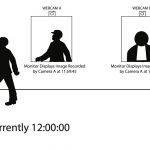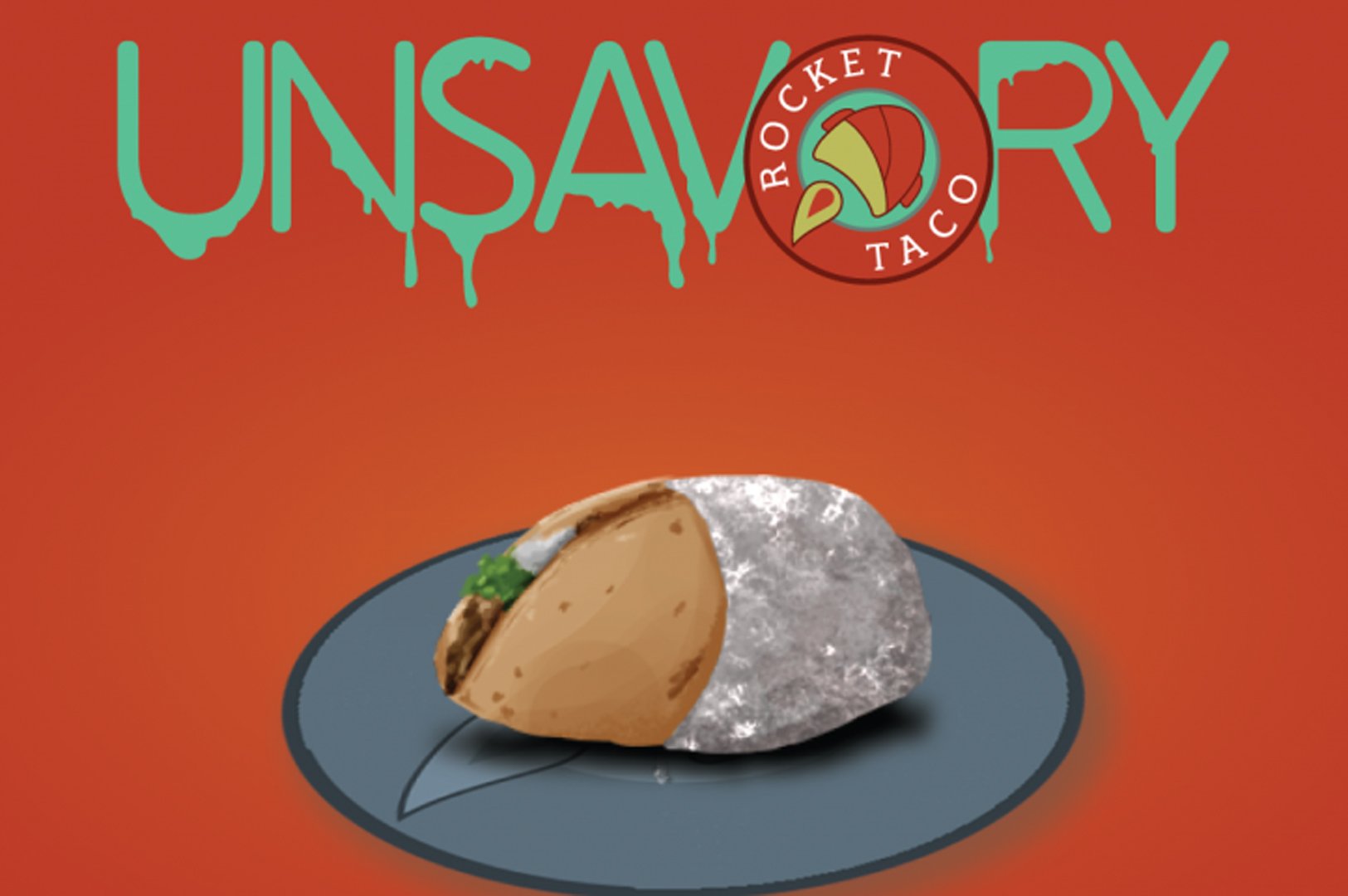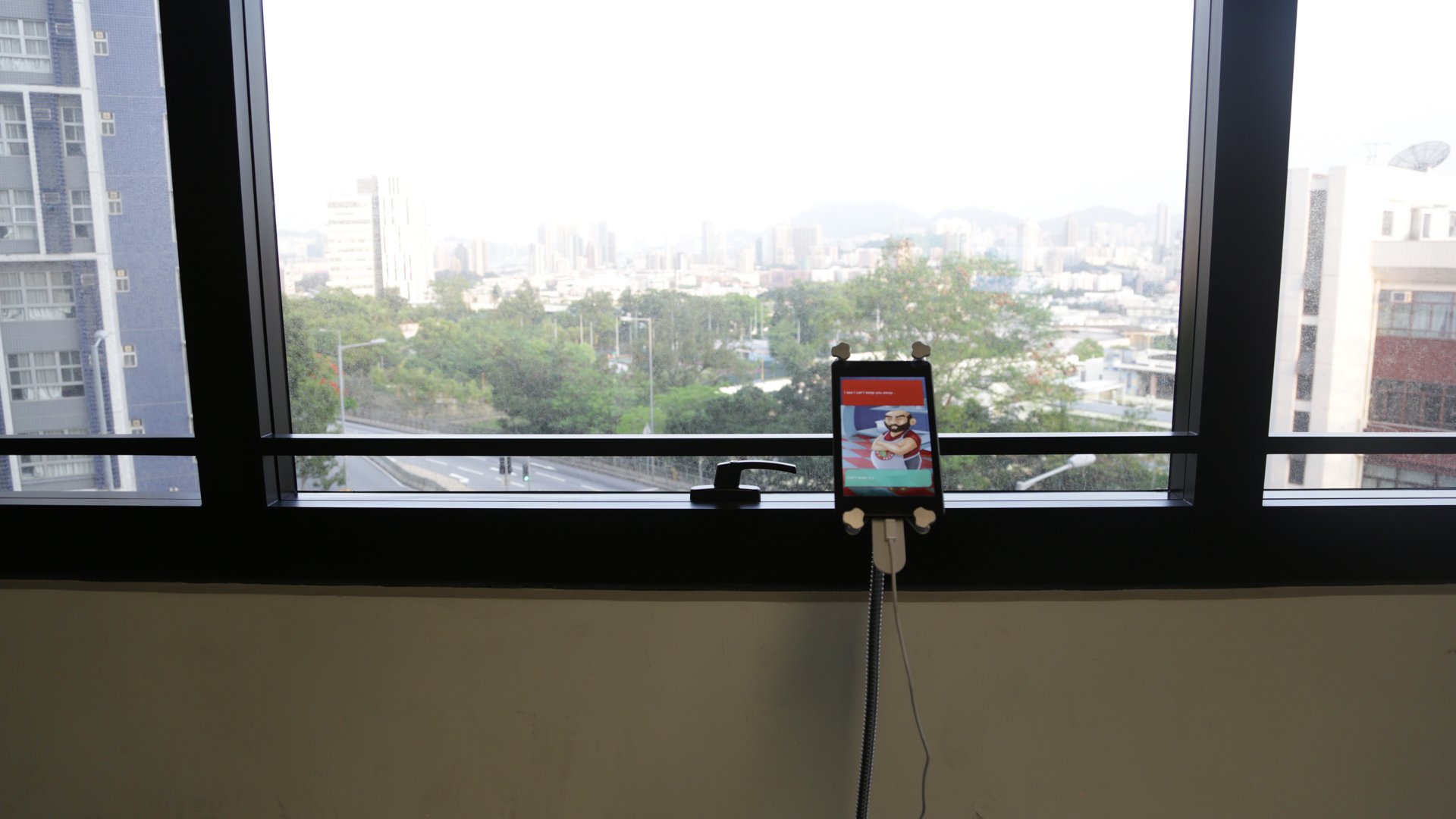“Unsavory” by Clay Ewing, Pablo Obando, Brandon Wilson, Andrew C. Gaines
Title:
- Unsavory
Artist(s) and People Involved:
Exhibiting Artist(s):
Symposium:
- ISEA2016: 22nd International Symposium on Electronic Art
-
More artworks from ISEA2016:


Venue(s):
Creation Year:
- 2015
Medium:
- Game
Duration:
- 5-10 minutes per game
Artist Statement:
Unsavory
Policies engineered by lobbyists can be shortsighted. The National Restaurant Association aggressively opposes mandated sick day legislation because they assume it will increase operating costs. While well-paid employees can easily take time off to recover from an illness, for employees making minimum wage, the decision to stay home could mean financial suicide. And in the restaurant industry, employees going to work while sick could result in a public health crisis. Unsavory is a mobile game designed to put the player in the precarious position of choosing between their personal health, public health and their financial wellbeing. Like other activist games, the intention is to create awareness and empathy around an issue that is best understood as part of a larger system.
Additionally, the game seeks to be a catalyst for change by embedding a social media campaign into gameplay that encourages players to share meaningful facts and statistics regarding restaurant workers, access to health care, and paid sick day legislation in the United States. The objective of the game is to pay all of your bills at the end of the month by working at a minimum wage job. At your job, you prepare tacos, quesadillas and burritos by tapping on the ingredients in front of you that match each order slips. Each round equals one day, and the game difficulty increases by introducing a new type of order slip. Every 5 days, the time allowed between orders is reduced to increase player difficulty. A player is allowed to screw up an order twice in one day without being penalized. However, if the player makes a third mistake and receives a third strike, they can either quit for the day or use a “re-shift” to play the round over again. If a player is out of re-shifts and goes home early more than two days out of the month, they’re fired.
Each day the player is welcomed to work by their boss. The boss admires a strong work ethic and is a bit slow when it comes to arguments presented by the player’s dialogue. The intent to is work through the logic of how things play out in the real world with dry humor. Players expect a challenge in a game, so a boss with tough love isn’t a stretch for the cultural context of a video game. At the end of each week, the player is paid for time worked. Typically, this is a full 40-hour week but if the player went home early the time they were unable to work is deducted for their paycheck. After work, the player is transported to their apartment where they are able to pay their bills, take medicine, and call in sick. To ground the game further in reality, the bills to be paid by the player are a simplified version of a financial plan created for McDonald’s employees in the United States by Visa.
The key takeaway that Unsavory attempts to impress upon players is that a person making minimum wage without access to paid sick days is systemically forced to work while sick. In the second week of the game, the player catches a cold. The screen begins to shake and the player must wipe their nose in time in order to stop the nose from releasing a torrent of snot onto the food trays. Each time the player wipes their nose a timer is reset. The sicker a player gets, the shorter the time period between required nose wipes. If the player sneezes, their boss realizes they are sick and sends them home for the day. The boss is upset that the player would come to work while sick, failing to understand that the player has no real choice in the matter. The player can opt to buy and take medicine or take a day off from work to increase their health, but they are not paid for that time. This makes paying the all of the bills impossible if the player takes more than one day off from work. Each proceeding day the player is fully aware that they are sick yet they continue to come to work and hide their condition. As the boss continues to interact with the employee, the original tough love dialogue now comes across as mean spirited and unrelenting. The system is laid out for the player to see as they have experienced it.
Beyond exposing the system, Unsavory seeks to promote a dialogue about paid sick day legislation. When the player first becomes sick, they receive a letter from an advocacy group that informs them about paid sick day policy in the United States. The player continues to receive messages with additional information about paid sick day legislation each time they come home from work sick. The messages act as a silver lining and point towards a better future. Each letter invites them to participate in a social media campaign within the game. From this campaign screen, they can select various tweets that highlight the issue through different lenses (with regards to business, public health, human rights concerns) and target specific hashtags and accounts related to the campaign. Thus, the game promotes a call to action that allows players to go beyond the gameplay and get actively participate in addressing and trying to fix a real-world problem.
The world is not black and white. Many gray areas exist. While perspectives are subjective and every bit of rhetoric can find some thread of reason to tug at, sound logic is fleeting from our world. Our world is full of systems. Systems control the world around be cold and calculating, so creating sets of rules for humans to play with allows us to tease out fact from fiction in a given system. We can’t unconsciously cheat a computerized system. We have to interrogate a system and understand it fully before we can hope to change it. This process goes back and forth with the artist and the audience, working together to find a mutual understanding through interaction.
Games are a collaborative endeavor. Relying on the strengths of other people to create something is humbling. The process of design is a constant reminder that by working together, we can achieve something fantastic.
Category:
All Works by the Artist(s) in This Archive:
- Clay Ewing

Unsavory
[ ISEA2016]
Candid Reflection
[ ISEA2014]- Pablo Obando

Unsavory
[ ISEA2016]- Brandon Wilson

Unsavory
[ ISEA2016]- Andrew C. Gaines

Unsavory
[ ISEA2016]






